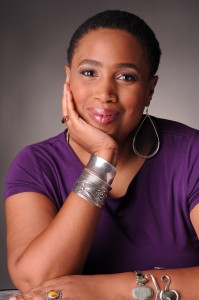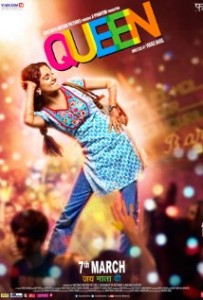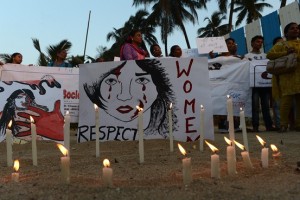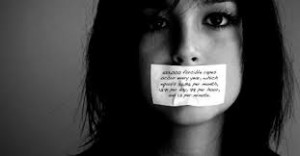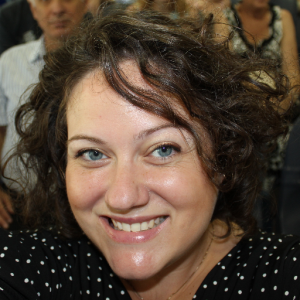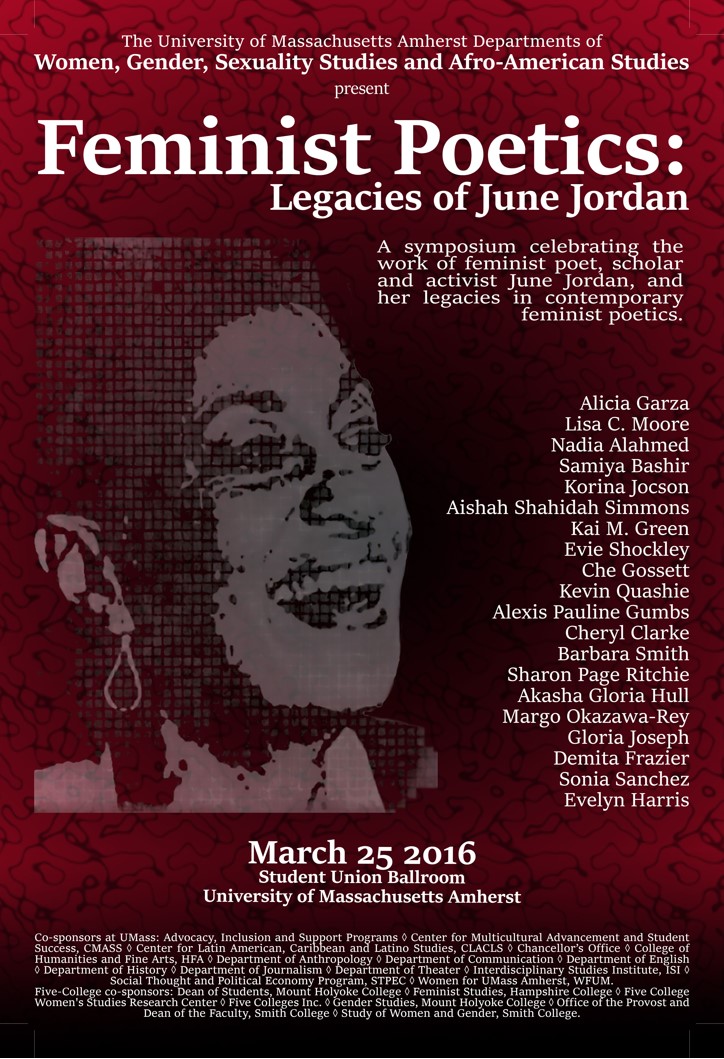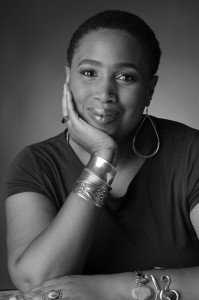By M. Shelly Conner
 As a kid, I loved nothing more than family gatherings. The adults partied the night away in the basement or front rooms of the host family’s home, and we children were sequestered away from their drinking and debauchery, piled up in the host child’s bedroom and left to our own devices. Those nights, filled with the unrestrained joy of being reunited after however many months had elapsed since our last visit, siblings and cousins challenged each other to play the dozens, sneak beer from the adults, and to stay awake far past the time that our preteen brains could function. No one wanted to get caught sleeping. The literal meaning mirrored the figurative, to be caught unaware or with one’s guard down. In my family, the first child to doze would awaken to find their face painted in toothpaste or whipped cream. The adults also seemed to partake in a similar ritual. Old family photos show slumbering aunts with empty liquor bottles planted around them and napping uncles oblivious to the colorful barrettes that had been placed in their afros.
As a kid, I loved nothing more than family gatherings. The adults partied the night away in the basement or front rooms of the host family’s home, and we children were sequestered away from their drinking and debauchery, piled up in the host child’s bedroom and left to our own devices. Those nights, filled with the unrestrained joy of being reunited after however many months had elapsed since our last visit, siblings and cousins challenged each other to play the dozens, sneak beer from the adults, and to stay awake far past the time that our preteen brains could function. No one wanted to get caught sleeping. The literal meaning mirrored the figurative, to be caught unaware or with one’s guard down. In my family, the first child to doze would awaken to find their face painted in toothpaste or whipped cream. The adults also seemed to partake in a similar ritual. Old family photos show slumbering aunts with empty liquor bottles planted around them and napping uncles oblivious to the colorful barrettes that had been placed in their afros.
Apart from family, my interactions with my peers presented a gendered form of this “game.” Boys crept up behind girls to yank their braids, swat them on the rear ends, or squeeze their budding breasts before taking off running and yelling, “Caught ya!” The offender later gathered to receive a round of high-fives from the other boys. The girls gathered in a circle to commiserate and share words of advice like, “You gotta watch out.” Even then, instilling that it is a woman’s job to always be on guard and man’s prerogative to play and to make playthings of girls and women.
When I was fourteen, I goofed off enough my first semester of freshman English to be sent to summer school. High school summer school is not the place to get a second go at understanding Shakespearean language or MLA formatting. It’s only about making up for missed days and completing copious amounts of busy work. I spent most of the time creating rhymes as a part of a nascent rap career with a male classmate. We rapped, joked, and passed them as notes while the instructor droned on about the next pages to be completed in our workbooks. When students finished early, we were allowed to read or even nap, as long as we remained relatively quiet. One day as I was dozing with my head down on the desk, I was awakened by a tickling sensation on my chest. My breast, to be exact. My friend/rap mate had been tweaking my nipple as I slept. I shoved his shoulder as he grinned and whispered, “What? Caught you sleepin’!” We never wrote another rap together, and I never fell asleep in class again. I didn’t tell the teacher. I didn’t tell my brother or the boys on the block who served as honorary big brothers. I handled it in the ways that girls are taught: to not get caught sleeping.
Not only are young boys taught that it is their duty to initiate sexual contact with women, it is also presented that it should occur when women are in their most passive states. This is illustrated in the fairytale notion of a woman’s sexual desire in need of being “awakened” by male contact. We see the beginnings of this in the behavior that is permitted for young boys to repeatedly place their hands on girls without invite and oftentimes as a direct physical violation. To pull their hair. To steal a kiss. To cop a feel. It’s not unusual for the gropes to be followed with claims that the girl wanted it. But these actions have nothing to do with what a woman wants.
I am reminded of a scene in the movie The Fifth Element when Bruce Willis’s character Korben Dallas encounters Milla Jovovich’s Leelo, the Supreme Being. She has been taken to a priest’s home to recuperate after Dallas finds her injured and unconscious. In this scene, Dallas attempts to gently wake Leelo by caressing her face, and when she doesn’t respond, he kisses her.
Dallas’s desire is privileged and he sees nothing wrong with taking the kiss. Leelo’s permission is unnecessary, neither is her consciousness. Perhaps part of the desire is her lack of agency. Dormancy. The unawareness that is attributed to being caught sleeping and unguarded. A woman’s inability to say “no” being scripted as receptivity.
 One of the most romanticized illustrations is in the tale of Sleeping Beauty. To place it in a more contemporary retelling: Beauty is slipped a “molly” and falls into a deep sleep. Some dude that she doesn’t know finds her unconscious and makes out with her in an effort to “awaken” or “save” her, which really reminds me of the guy who found his neighbor unconscious and had sex with her to “save her life.” This is what feminists mean when we argue about the rape culture that is being cultivated by all of our institutions: The idea that unless a woman says no, the default answer to unsolicited advances is yes. The linking of male desire to women’s silence and passiveness. The propagation that sexual violations against unconscious women are some form of “play” that can be dismissed as just “catching someone sleeping,” as evidenced by Rick Ross who saw nothing wrong with rapping, “Put Molly in her champagne; she ain’t even know it/ I took her home, and I enjoyed that, she ain’t even know it.” Ross’s desire is not predicated on the woman’s permission or participation. In fact, it seems to stem from her inability to do either. Most recently, Cee-Lo Green has also copped to drugging a woman’s drink with Ecstasy. His response via Twitter regarding rape, “If someone is passed out, they’re not even WITH you consciously, so WITH implies consent…Women who have really been raped REMEMBER!!!”
One of the most romanticized illustrations is in the tale of Sleeping Beauty. To place it in a more contemporary retelling: Beauty is slipped a “molly” and falls into a deep sleep. Some dude that she doesn’t know finds her unconscious and makes out with her in an effort to “awaken” or “save” her, which really reminds me of the guy who found his neighbor unconscious and had sex with her to “save her life.” This is what feminists mean when we argue about the rape culture that is being cultivated by all of our institutions: The idea that unless a woman says no, the default answer to unsolicited advances is yes. The linking of male desire to women’s silence and passiveness. The propagation that sexual violations against unconscious women are some form of “play” that can be dismissed as just “catching someone sleeping,” as evidenced by Rick Ross who saw nothing wrong with rapping, “Put Molly in her champagne; she ain’t even know it/ I took her home, and I enjoyed that, she ain’t even know it.” Ross’s desire is not predicated on the woman’s permission or participation. In fact, it seems to stem from her inability to do either. Most recently, Cee-Lo Green has also copped to drugging a woman’s drink with Ecstasy. His response via Twitter regarding rape, “If someone is passed out, they’re not even WITH you consciously, so WITH implies consent…Women who have really been raped REMEMBER!!!”
I recently threw a party for my brother’s fortieth birthday at my home. It was great to see friends and family and honorary brothers from the neighborhood. We still play the dozens and reminisce on some the best jokes launched at each other. It’s been almost twenty years since my brother referred to one friend’s Tasmanian Devil medallion with a missing foot as “Kunta Taz.” We still deride those who spill drinks, stumble, or are the first to fall asleep.
My godbrother was in attendance. He can always be counted on to help me when I need any heavy lifting done. Or to pick up or drop off my father. Or just about anything that I could ask of him. My godbrother is a great guy…until he gets drunk. Then my godbrother becomes THAT guy. He says inappropriate things to women (regardless of their relationship status or sexual orientation). I think I’ve spent the past decade apologizing to friends, relatives, and lovers for his behavior. I have begged men to spare him much-deserved ass whippings.
My home is a safe space for all who enter. They will be entertained, fed well, and should they imbibe beyond the legal limit, they will have a safe space to sleep. That was challenged when a female friend of mine needed to sleep and I directed her to lie in my room. I overheard my godbrother suggesting to a male cousin that he lie down with my friend and touch her while she slept. My cousin, a true gentleman even when drunk, was not entertaining it. But to hear such a suggestion in my home was the ultimate violation. Even now, while writing this, I can only transcribe the actual conversation to the best of my recollection. I cannot detach from the experience and write retrospectively:
Godbrother (GB): You should go in there and lay down with her.
Me: What? What are you saying? Dude, you can’t say that. You can’t suggest that.
GB: What? I’m not saying he DO anything. Just touch her hair and if she turns around then…
Me: Stop talking. You can’t just touch somebody in their sleep.
GB: I’m not saying DO anything…but if she turns around then you can touch. ::Pantomimes holding breasts in front of his chest.:: See if she’s interested.
Me: He can’t do that. That’s sexual assault. You can’t suggest he do that.
GB: It’s not doing anything.
Me: It is EXACTLY doing something. It’s sexual assault, and you can’t suggest that. This is the stuff that we talk about contributing to a rape culture.
GB: I’m not a rapist. I’m not saying rape her. I’m just saying…
At that time, I tried calling for my brother because I was really angry and I just wanted him out of my face. But my godbrother was caught in thinking that I had called him a rapist and he found my brother first. By the time I arrived in the kitchen, it was to three angry, drunk, and hurt men admonishing me for making a false accusation. My brother suggested that I apologize for calling my godbrother a rapist. “He’s not a rapist,” I said. “But what he was suggesting sounded pretty goddamned rape-y.”
My cousin and brother wanted me to appease my godbrother and apologize, if only for the interest of preventing him from driving home drunk and distraught. I admit, he really was hurt but I could not see him as some victim after what he had suggested. His ignorance was dangerous to himself and I finally saw how it made him a danger to women. His inability to realize (drunk or otherwise) that failure to obtain permission from a woman to touch her, was sexual assault. His lack of concern that she was not awake. Not to mention his complete disregard for her sexual orientation. My friend is a lesbian. For him, she didn’t need to be attracted to men or even conscious.
We all argued and it was mostly about their insistence that I had called my godbrother a rapist. They made the most compelling arguments about false rape accusations, which I don’t deny exist. And I responded, just as strongly, that that was not what had occurred this night. I had not falsely accused him of suggesting a sexual violation against my friend; he had actually made the suggestion and continued to make it even after I demanded that he cease and desist.
My brother argued that this was not the time to discuss things because my godbrother was drunk. I responded that this was exactly when these conversations need to happen. These types of sexual assault happen when people are drunk. Conversation needs to occur both in drunkenness when the violation threatens to occur and when sober. There is no wrong time for such discussions.
My brother has always been my personal gladiator. In fact, it was only a few years ago when my godbrother, in a drunken effort to illustrate why my girlfriend at the time was more physically desirable than me, placed his hands on my inner thighs and derided my thinness and the gap between my legs in comparison to my girlfriend’s thicker build. All I could think to do at the time was call for my brother who was out on the balcony. And just like when we were kids and I had seen a centipede or anything that frightened me, my gladiator appeared, fuming at the source of my distress.
I reminded my brother that following day as we all sat nursing more anxiety than hangovers (my godbrother had stormed out that night and the fellas blamed me for not apologizing while I blamed them for not taking his keys), that it is not my job to convince him of a violation to my person or my home. I am his sister who he has known all of his life. That experience is my testament. When I told him that I had called for him, something shifted and he dropped his argument.
“You did?” His hazel eyes sparkled in slight disbelief.
“Of course, I did. I didn’t want to talk to him anymore. I called for you and he thought I was drunk and calling him by your name. But I told him. I’m not calling you him. I’m calling FOR him. For him to come and get you out of my face.”
My brother apologized for not being there for me and we had the conversation again but this time sober. It bears repeating that these conversations need to happen drunk and sober. Yes, emotions run high when fueled by alcohol, but I’d rather have a drunken emotional conversation than have a dear friend wake in my bed to someone groping her. We had the conversation without anger, without accusations, and unfortunately, without my godbrother.
I don’t know what if anything my godbrother took from this latest foray. I don’t know if he’s put together this pattern of behavior. At this point, I no longer care whether he thinks that I called him a rapist or not. I think about what happens if he makes such a suggestion to someone who IS a rapist about someone who doesn’t have a gladiator. I hope that he learns his lesson and it is by way of deep reflection and not the deep physical pain that comes from some burly man who does not take kindly to his wife/sister/girlfriend/cousin/friend being caught sleeping by my godbrother.
 After Note: In The Fifth Element, Dallas kisses Leelo, and within seconds she has a gun pressed to his temple. She growls something in her native language, while he retreats saying, “You’re right. I shouldn’t have done that.” Later, when he asks the priest what her words meant, the priest answers, “Never again without my permission.”
After Note: In The Fifth Element, Dallas kisses Leelo, and within seconds she has a gun pressed to his temple. She growls something in her native language, while he retreats saying, “You’re right. I shouldn’t have done that.” Later, when he asks the priest what her words meant, the priest answers, “Never again without my permission.”
 M. Shelly Conner received a Ph.D. in English from the University of Illinois at Chicago. She is an instructor in the English Department at Loyola University Chicago and Executive Director of Quare Square Collective, Inc., a nonprofit collective for Midwest Queer Artists of Color. Shelly’s creative and academic writing explores the intersections of race, gender, and sexuality. She is currently exploring publishing options for her debut novel everyman.
M. Shelly Conner received a Ph.D. in English from the University of Illinois at Chicago. She is an instructor in the English Department at Loyola University Chicago and Executive Director of Quare Square Collective, Inc., a nonprofit collective for Midwest Queer Artists of Color. Shelly’s creative and academic writing explores the intersections of race, gender, and sexuality. She is currently exploring publishing options for her debut novel everyman.
The post Don’t Get Caught Sleeping: Male Desire of Unconscious Women appeared first on The Feminist Wire.


